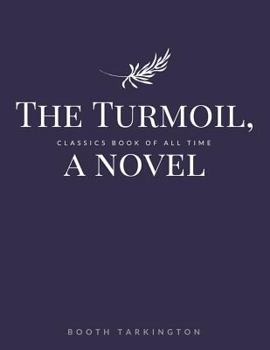Book Overview
This book was converted from its physical edition to the digital format by a community of volunteers. You may find it for free on the web. Purchase of the Kindle edition includes wireless delivery.
Format:Paperback
Language:English
ISBN:1548242071
ISBN13:9781548242077
Release Date:June 2017
Publisher:Createspace Independent Publishing Platform
Length:140 Pages
Weight:0.75 lbs.
Dimensions:0.3" x 8.5" x 11.0"
Customer Reviews
2 ratings
Business 1, Art 0 (Game still in progress)
Published by Thriftbooks.com User , 18 years ago
This novel is about how the artistic soul is sacrificed on the altar of big business. Except in this case the artist willingly makes the sacrifice and has no regrets afterward. Thus, the novel can't be counted a tragedy. John Sheridan lives by one mantra: Bigger is better. He owns the Sheridan Pump Works and is determined to make it an industrial giant. He brings his two oldest sons into the business only to see them fail. His youngest son, Bibbs, is sickly and dreams of becoming a writer. But his father won't hear of it and puts him to work in the company, too. Surprisingly, Bibbs thrives in this setting and pushes the company onto ever greater levels of success. His fiancé is appalled that he would go along with his father's wishes, but Bibbs assures her he never would have made it as a writer and he made the right decision. It's a surprising development: one expects Bibbs to stand up to his father and declare his artistic endeavors more important. But I think Tarkington is being realistic here, and he is careful to develop Bibbs's character so that we can see him appreciate the usefulness his life takes on from the emptiness he'd known before because of his illness. Tarkington was not afraid to praise big business, though he also knew what to criticize about it, too (one thing he was quick to point out was how it spoiled natural beauty). If John Sheridan could declare, "Wealth! I will get wealth! I will make Wealth! I will sell Wealth for more Wealth," his son Bibbs could remark on how his father had served business blindly while he, Bibbs, believed "If man would let me [business] serve him, I should be beautiful." There is no irony intended in this, just a statement of belief. The first volume in a trilogy on industrialism, it's an interesting work.
Solid Tarkington
Published by Thriftbooks.com User , 24 years ago
Tarkington manages to cram an East of Eden epic into 350 pages. The story begins with the sallow and sickly Bibbs coming home from a sanitarium. He has been placed there because of his nerves. His father, known as Sheridan, is the leading capitalist in the bustling Indiana town and his other two sons are at the helm of his money making machine. Sheridan despises his son for being weak. Bibbs, is a poet and dislikes work. He is very smart and not interested in making money. He'd rather write and think. The primary focus of the story is his rehabilitation. He discovers his next door neighbor, Mary, and falls in love with her (typical Tarkington romance). His father forces him into the company's "inner" works were he is forced to work at a noisy machine all day. He dislikes what capitalism and greed has done, noting the heavy smog in the air (ashes come down like snow) and the problems of capitalism. However he grows stronger and we find him to be a very capable man. The "turmoil" is Bibbs finding a balance between working and "living." Tarkington almost comes off as a Sinclair Lewis or Ellen Glasgow at times, but overall there is a LOT going on in this novel, which carries it along extremely well. I wasn't that happy with the ending, as I didn't think Bibbs had found a compromise but rather an acceptance of his fate. One of the best Tarkington books I've read, though.






